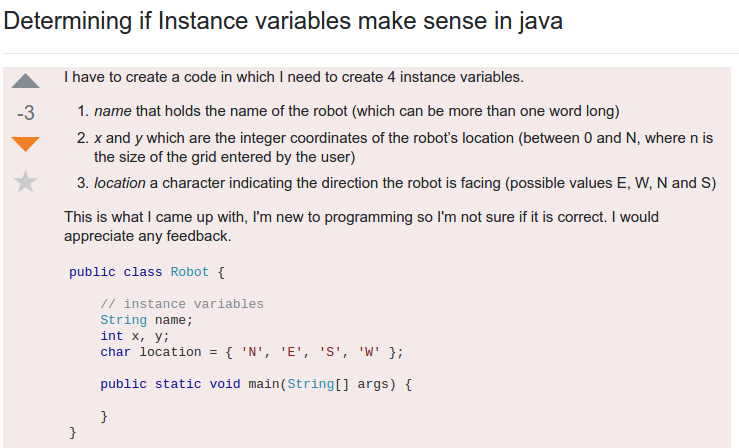I came across this question this morning. Basically a homework thing, with maybe 5% of the required code; the assignment instructions and the request This is what I came up with, I'm new to programming so I'm not sure if it is correct. I would appreciate any feedback.
I put up a comment, downvote and close request; as I felt that this question was too broad; and in my eyes looking for "open ended" assistance. Other users disagreed; and coming back some hours later ... there were a bunch of comments giving feedback; not no answer; and two more downvotes.
Thus I put up this argument:
In my experience, "good" newbie questions receive a few precise answers quickly. Here? Wide open ... for me, that underlines the point that people have no idea how to answer this.
Another user claimed (my words) that those comments were answers ... and disclaimer: question was already deleted by the questioner.
Long story short:
- To practice my review skills: do you think my assessment was wrong? (actually I was the only one to put up a close request)
- Hopefully not too opinion-based: do you think that "comment count vs. answer count" can be a meaningful "marker" to assess the quality of a question?
And, as request; a screenshot of the question (leaving out the comments): 